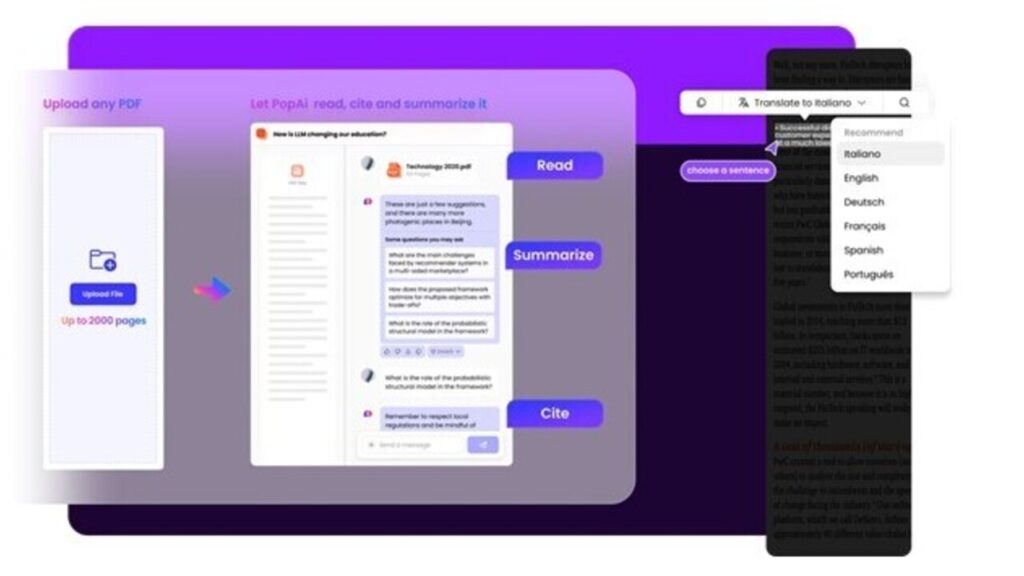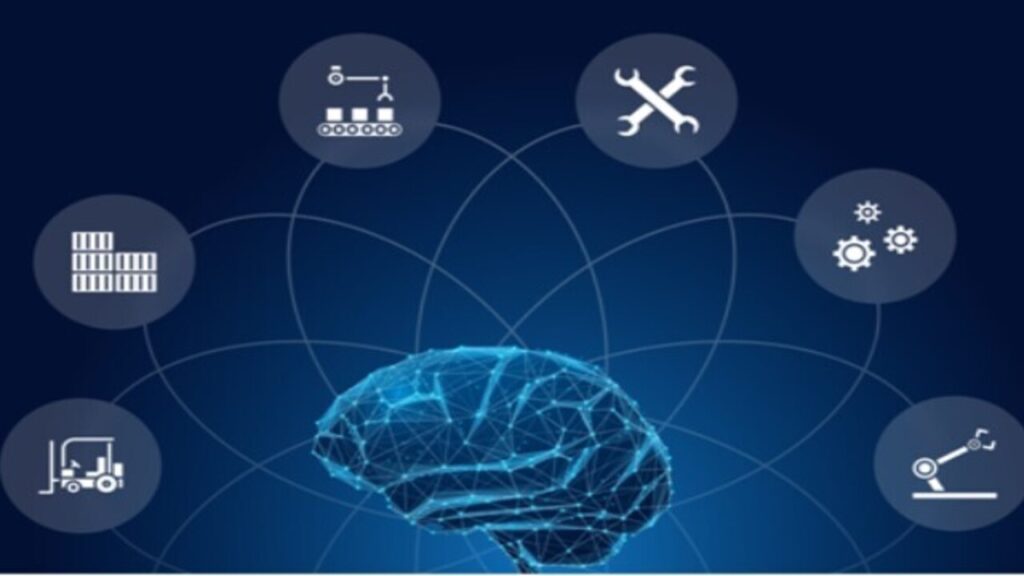Artificial intelligence (AI) is transforming organizations of all sizes by automating processes, unlocking insights from data, and enhancing customer experiences. By 2030, AI could contribute over $15 trillion to the global economy. Implementing AI solutions across key business functions delivers tangible benefits like improved efficiency, predictive decisions, and cost savings.
This article lists seven impactful AI use cases for businesses and how they drive productivity and performance. Let’s explore the game-changing potential of artificial intelligence software.
AI Tools for Business Use Cases
Supply Chain Optimization
AI supply chain solutions leverage predictive analytics and prescriptive modelling to improve planning, inventory management, and logistics significantly. By analyzing past demand, pricing trends, competitions, weather data, and more, the algorithms accurately forecast future needs. This allows for optimal production and inventory allocation minimizing waste.
Intelligent warehouse robots also speed up order fulfilment, transport goods, and track assets autonomously 24/7. Combined with dynamic shipment routing, AI unlocks immense efficiency in supply chain operations. It also assists strategic decision-making on suppliers, sourcing locations, and staffing needs for maximum ROI.
Marketing Personalization
AI marketing platforms process customer and behavioural data to deliver tailored content, product recommendations, and experiences to website visitors. Chatbots even enable one-on-one conversations at scale. Dynamic creative optimization runs A/B tests automatically to refine messaging and offers.
With in-depth personal understanding, AI allows brands to engage audiences when and where it matters most through their preferred channels. This nurturing drives loyalty and conversions while building meaningful relationships.
Document Processing
Mundane administrative tasks like data entry, invoice generation, and document analysis bog down human productivity. Leveraging optical character recognition and natural language processing allows AI solutions like PopAi pro to extract key information from forms, receipts, contracts etc. and instantly structure data for easy processing or review.

An AI reader significantly accelerates these document workflows freeing up staff to be more strategic. It also minimizes costly errors that delay operations.
HR and Recruiting Automation
HR teams handle high volumes of inquiries and applicants daily, making it challenging to provide timely, personalized responses, let alone evaluate candidates effectively. AI recruitment tools automate screening, scheduling, messaging, assessments, and more to engage applicants 24/7 with relevant updates while assessing cultural fit.
For employee development, AI analytics comb through performance data, reviews and metrics to create customized training recommendations that align with growth areas. This automation enhances recruiting and talent optimization.
Process Automation
From IT to finance to customer service, AI radically advances process automation for dramatic productivity gains. Intelligent chatbots handle an endless array of routine queries and requests instantly freeing human agents to resolve more complex issues. Virtual assistants take meeting notes, generate reports, optimize media, and perform repetitive tasks autonomously.
Robotic process automation can replicate manual inputs between enterprise applications. Structured and unstructured data are integrated seamlessly, so decisions leverage full, up-to-date information. This efficiency across workflows means better service and accelerated growth.
Financial Reporting and Accounting
Accounting tasks like transactions, reconciliations, financial planning, and reporting are prime for AI automation. Intelligent solutions extract key data from documents and systems to categorize expenses, prevent fraud, forecast budgets, and deliver real-time analytics on cash flow.
Built-in best practices ensure regulatory compliance. Automated assistants can also generate monthly close reports, analyze past performance, and customize presentations for stakeholders, saving managers substantial time.
Voice Assistants for Customer Service
AI-powered voice assistants enable consumers to self-serve through conversational interactions rather than navigating phone trees. Beyond common inquiries for hours, locations or account lookups, advanced context awareness delivers individualized guidance. Voice biometrics authorize secure account access.
Virtual assistants seamlessly hand off complex issues to human agents. They also route questions and collect data to the best team, reducing resolution time. The user-friendly voice automation enhances CX exponentially while reducing call volume costs.
How Using AI Tools Can Benefit Your Business
Now that we’ve explored the leading applications of AI software across businesses, what benefits can you expect to realize? Here are the core advantages:
Increased Efficiency and Accuracy
AI handles time-intensive, repetitive tasks from document processing to personalization while optimizing decisions through data-backed recommendations. Bots and automation also minimize errors that delay operations, allowing staff to prioritize high-ROI initiatives.
Improved Decision-Making
Predictive modelling assists long-term planning and forecasting by leveraging internal data, external signals, and identified trends. Prescriptive recommendations guide critical choices to accelerate growth. Uncovering historical patterns provides context for strategic direction.
Cost Savings
Businesses see substantial cost reductions by reducing manual labour needs with automation and enhancing outcomes from AI-optimized processes. Scalable AI solutions also provide unlimited output without the required additional spending. The technology pays for itself quickly, delivering a lasting competitive advantage.
Conclusion
Implementing artificial intelligence across supply chain, marketing, operations, HR, CX, and finance unlocks immense potential for companies to streamline productivity, inform decisions with data, and maximize program outcomes. While capabilities continue advancing rapidly, adopting AI now future-proofs processes with scalability.
Have you explored deploying machine learning and automation to drive efficiency? In the comments, share your thoughts on the use cases with the highest impact potential in your organization!
Also Read: The Ultimate Guide to the Envato Grammarly Canva Package
